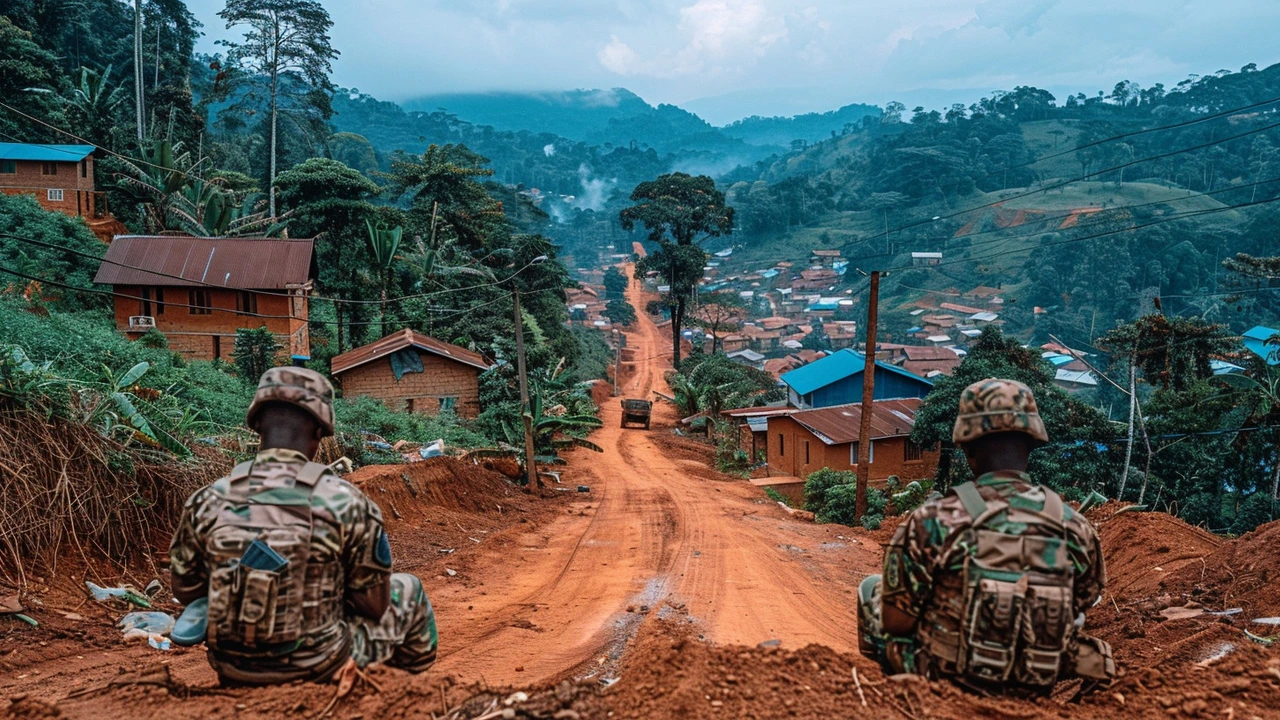DRC Tribunal Sentences 25 Soldiers to Death for 'Fleeing the Enemy'
In a significant and controversial decision, the Butembo military court in North Kivu province of the Democratic Republic of the Congo (DRC) has sentenced 25 soldiers to death. These soldiers were accused of fleeing the battlefield during a confrontation with M23 rebels, wasting war munitions, and violating orders. This tribunal was established near the scene of recent clashes with the intent of deterring other soldiers from deserting their positions. This decision has sent shockwaves through the military and rekindled debates on the moral and strategic implications of capital punishment in wartime.
The Verdict
The military court's decision follows a similar judgment passed in Goma in May, where eight soldiers, including five high-ranking officers, received the death sentence for 'cowardice' and 'fleeing the enemy.' These verdicts mark a grim turn in the DRC's policy towards its soldiers, ending a de-facto moratorium on the death penalty that had been in effect since 2003. Concerns have been raised by human rights activists like Moise Hangi, who believe that reinstating the death penalty could further destabilize the military by instilling fear and apprehension among soldiers already operating under extreme stress and challenging conditions.
Strategic Implications
The region of North Kivu has long been a flashpoint due to its mineral riches, including gold and coltan, which various armed groups vie for control over. The conflict involves over 100 different factions, making it one of the world's most complex and protracted wars. Among these groups, the M23 rebels have been particularly effective in recent times, making significant territorial gains. Their capture of the strategic town of Kanyabayonga, a crucial gateway to major commercial hubs, underscores their growing influence and the challenges faced by the DRC's military forces. The United Nations has pointed to Rwanda as a backer of the M23 rebels, a charge that Rwanda vehemently denies.
Human Impact
The ongoing conflict has had a devastating impact on civilians, with the UN Office for the Coordination of Humanitarian Affairs (OCHA) reporting that 2.8 million people have been displaced in North Kivu alone. The humanitarian crisis is compounded by widespread human rights abuses, including attacks on civilians, sexual violence, and the recruitment of child soldiers. The military's harsh sentencing of its own soldiers could be interpreted as a desperate measure to stem the tide of desertions, but it may also erode morale and exacerbate the already precarious situation for ordinary soldiers on the front lines.
Controversy and Criticism
The death sentences have sparked considerable controversy, both within the DRC and internationally. Critics argue that the government's decision to lift the moratorium on capital punishment is a regressive step that violates the principles of human rights and could diminish the legitimacy of the state. At the same time, supporters of the move contend that strict measures are necessary to maintain discipline and order within the ranks, particularly given the existential threat posed by the M23 and other rebel groups. This debate is likely to intensify as the conflict continues and as more cases come to court.
Moving Forward
As the DRC navigates this complex and volatile situation, questions linger about the effectiveness and morality of its judicial and military strategies. The lifting of the moratorium on the death penalty may provide a temporary solution to issues of discipline, but it also risks significant backlash both domestically and internationally. Humanitarian organizations and international bodies are watching closely, calling for a balanced approach that upholds human rights while addressing the very real security concerns facing the country.
The future remains uncertain, but what is clear is that the stakes are incredibly high. The DRC's decisions in the coming months and years will have far-reaching implications not only for its military and civilian population but also for regional stability in central Africa. The world will be watching closely as these events unfold, hoping for resolutions that bring peace, security, and justice to this troubled region.
Conclusion
The death sentences handed down to 25 soldiers for fleeing the enemy highlight the severe measures the DRC government is willing to take to enforce discipline during a protracted conflict. As the country grapples with internal and external pressures, the repercussions of lifting the moratorium on the death penalty are yet to be fully understood. This moment stands as a critical juncture that will shape the future trajectory of the DRC's military conduct and its broader human rights landscape.

